In March 2023, the number of paramedics in the UK surpassed 40,000 for the first time. These record-breaking figures follow a surge in popularity that has seen the paramedic profession become one of the fastest-growing in the entire healthcare sector over recent years. With interest at an all-time high, this article will explain how to become a paramedic and what a career in emergency medical services entails.
Medical Careers: How To Become A Paramedic
If you’re passionate about supporting others but crave more excitement than traditional healthcare roles, a career as a paramedic might be what you’re looking for. With an ageing population and an expanding healthcare sector, the growth of the paramedic profession is expected to continue, making it a reliable career to pursue. So, whether you’re a school leaver or considering a career change, keep reading as we explain the training required and the role of a paramedic.
- What Is A Paramedic?
- How Do You Become A Paramedic?
- What Are The Key Skills Of A Paramedic?
- How Long Does It Take To Become A Paramedic
- How Much Do Paramedics Make?
- Finding Paramedic Positions
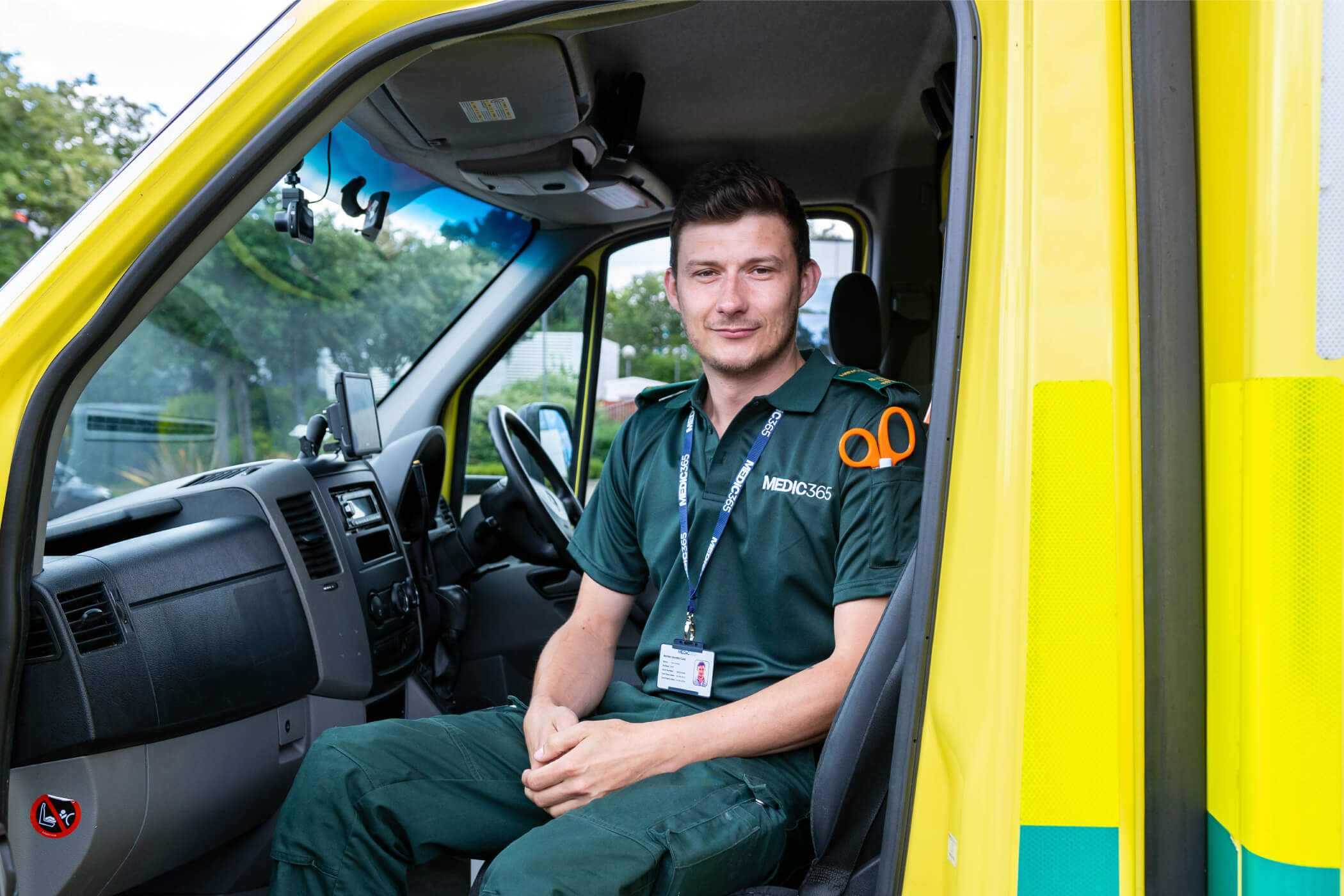
What Is A Paramedic?
A paramedic is a medical professional who specialises in emergency treatment. They primarily work in emergency rooms and ambulances, where they treat people with urgent problems. Paramedics are not Emergency Medical Technicians (EMTs), though many EMTs receive further training to become paramedics. EMTs are responsible for stabilising and transporting people who call for emergency medical care, while paramedics can provide more advanced care in medical emergencies.
The word paramedic can be broken down into two parts. ‘Para’ means next to, and ‘medic’ means doctor. That’s because paramedics work alongside doctors, though not always physically, to provide lifesaving treatment. They may communicate with a doctor via phone, radio, or pre-written orders to provide medical care until the patient is taken to the hospital.
These are some of the most common responsibilities of a paramedic on call:
- Perform CPR
- Use a defibrillator
- Clear airways
- Give IV medication
- Give someone a tracheotomy
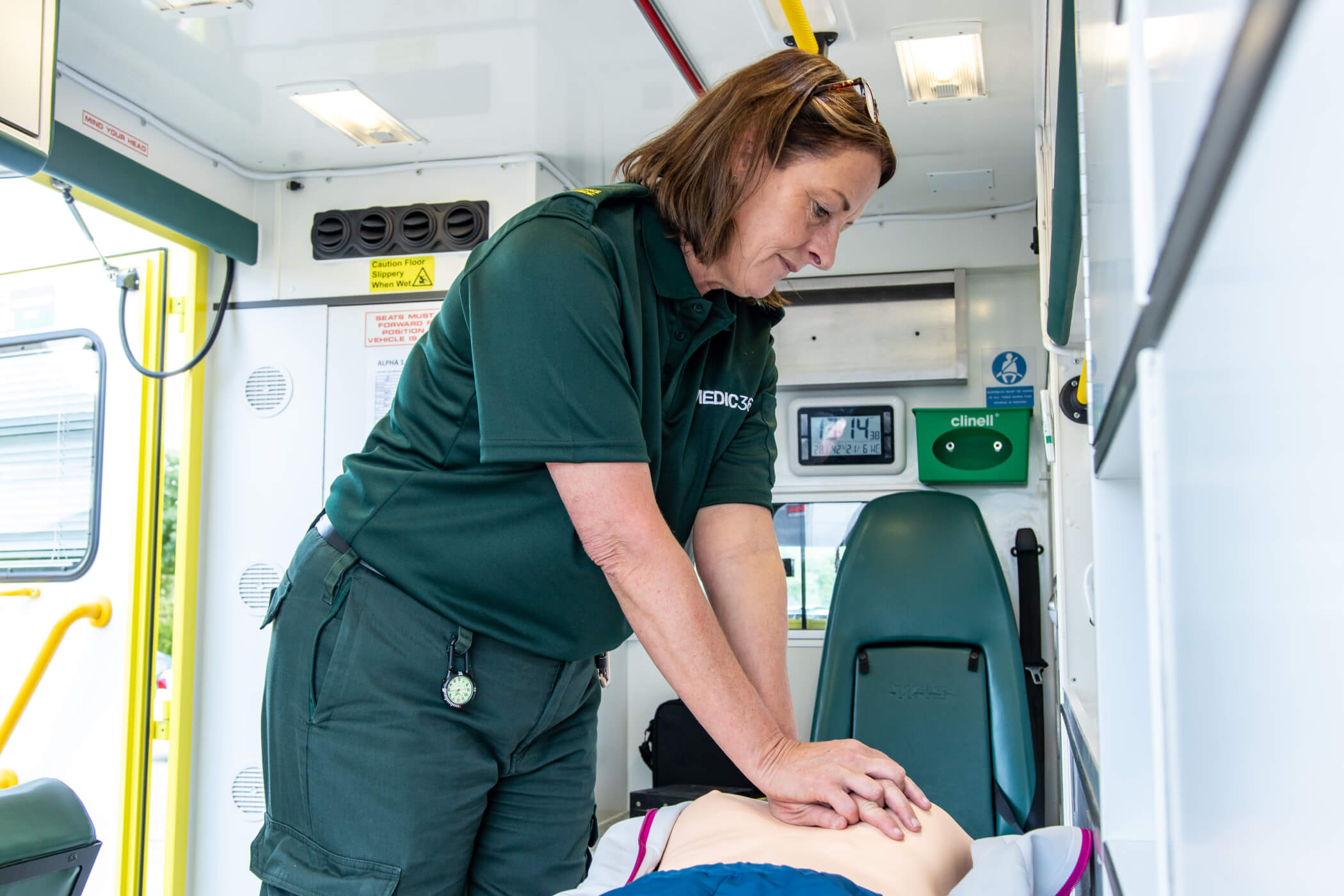
How Do You Become A Paramedic?
To be a paramedic, you have to be registered with the Health Care Professions Council (HCPC). Only those with a Paramedic Bachelor’s Degree with honours are eligible to register with the HCPC. That’s why the most common route to becoming a paramedic is to study BSc Paramedic Science/Practice full-time at university. For those who already work as an EMT or in a similar role, you may be able to complete a paramedic qualification through your employer.
While entry requirements will differ between universities, all Paramedic Science/Practice degrees must meet the strict standards to be accredited by the HCPC. Most courses have entry requirements in the range of 112-120 UCAS tariff points with a qualification in at least one relevant science subject. Paramedic Science/Practice degrees typically take three years to complete, but an additional year in the industry is often recommended. Some universities require a driver’s licence to be accepted into the course, as it is so advantageous for paramedics to have.
The second option available to those aiming to join the HCPC is through a Paramedic Degree Apprenticeship. This route combines paid work and study to give participants a well-rounded and practical understanding of life as a paramedic. The entry requirements are similar to those for a Paramedic Bachelor’s Degree, and the apprenticeship also takes three years to complete. At least 20% of the apprentice’s time will be spent studying or training.
If you’re unsure whether a career as a paramedic is right for you, a Medic 365 first aid course in Milton Keynes is an excellent opportunity to try it out before you commit. Our courses cover many of the treatments you’ll administer as a paramedic, like CPR and defibrillation. Contact us today to get hands-on experience and find out whether a career in prehospital care is right for you.
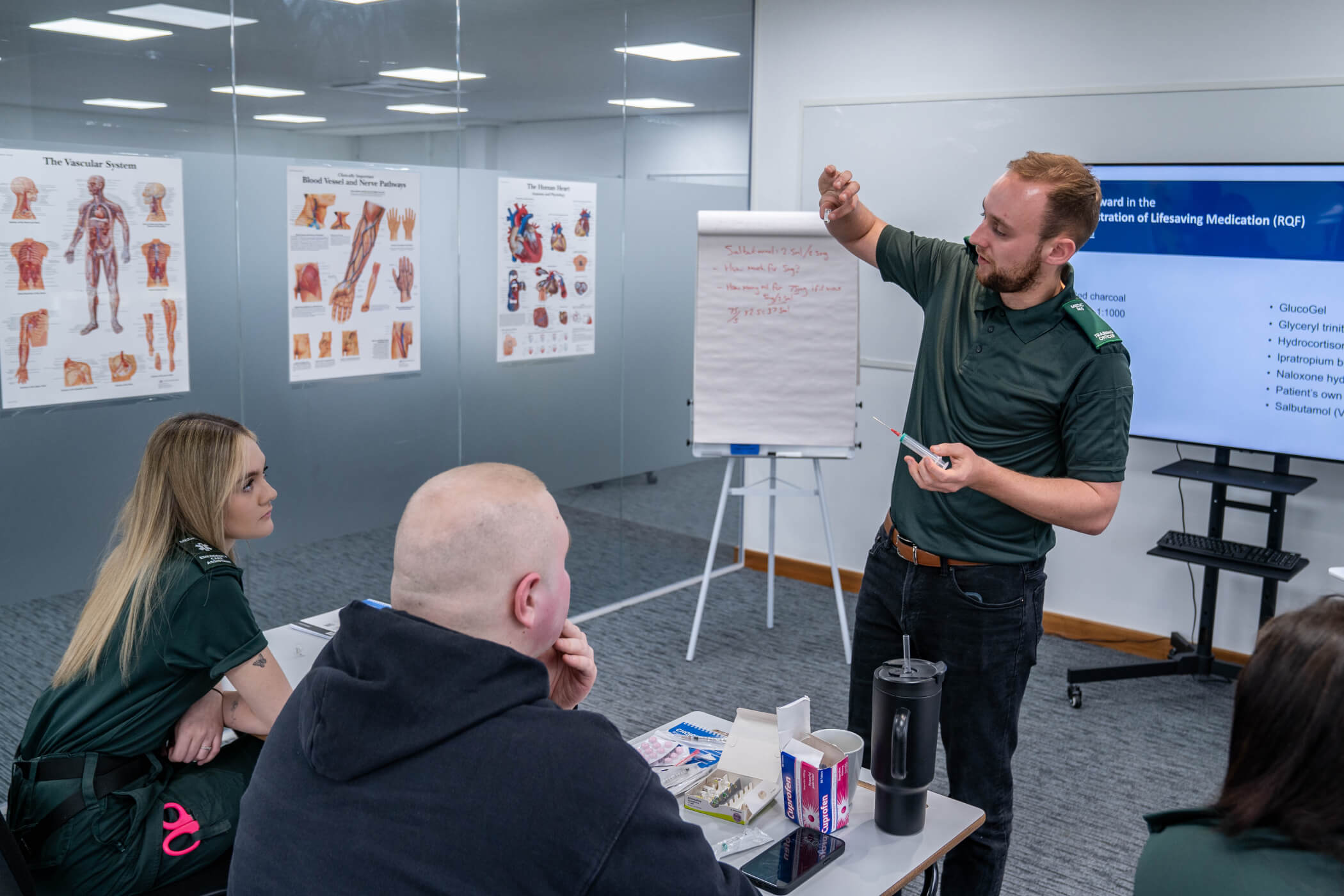
What Are The Key Skills Of A Paramedic?
Paramedics require a combination of medical knowledge, technical skills, and personal attributes to effectively perform their duties. Here are the key skills that define a successful paramedic:
Medical And Clinical Skills
- Assessment and diagnosis: Quickly evaluate the patient’s condition and prioritise treatment.
- CPR & Resuscitation: Perform lifesaving procedures like CPR and defibrillation.
- Trauma Care: Treat injuries like fractures, bleeding and burns.
- Medication Administration: Safely administer drugs, including pain relief and emergency medications.
- Airway Management: Use equipment like oxygen masks or perform intubation.
- Advanced Life Support: Handle critical care situations, including heart attacks and severe allergic reactions.
Personal Skills
- Communication: Actively listen to patients and bystanders, provide clear and concise guidance, and reassure patients and their families.
- Decision Making: Make quick decisions under pressure, adapt to changing situations and decide on the best course of action for patient care based on evidence.
- Leadership: Manage challenging behaviours from patients or bystanders. Take charge in emergencies and coordinate team members.
- Willingness To Learn: Learn new tools and methods as the medical industry evolves. Stay updated on medical advances and emergency protocols.
Physical Skills
- Physical Fitness: Handle strenuous activities like lifting patients and operating equipment.
- Stress Management: Maintain focus and composure in emergencies.
- Emotional Strength: Cope with exposure to trauma, distressing situations, and loss of life.
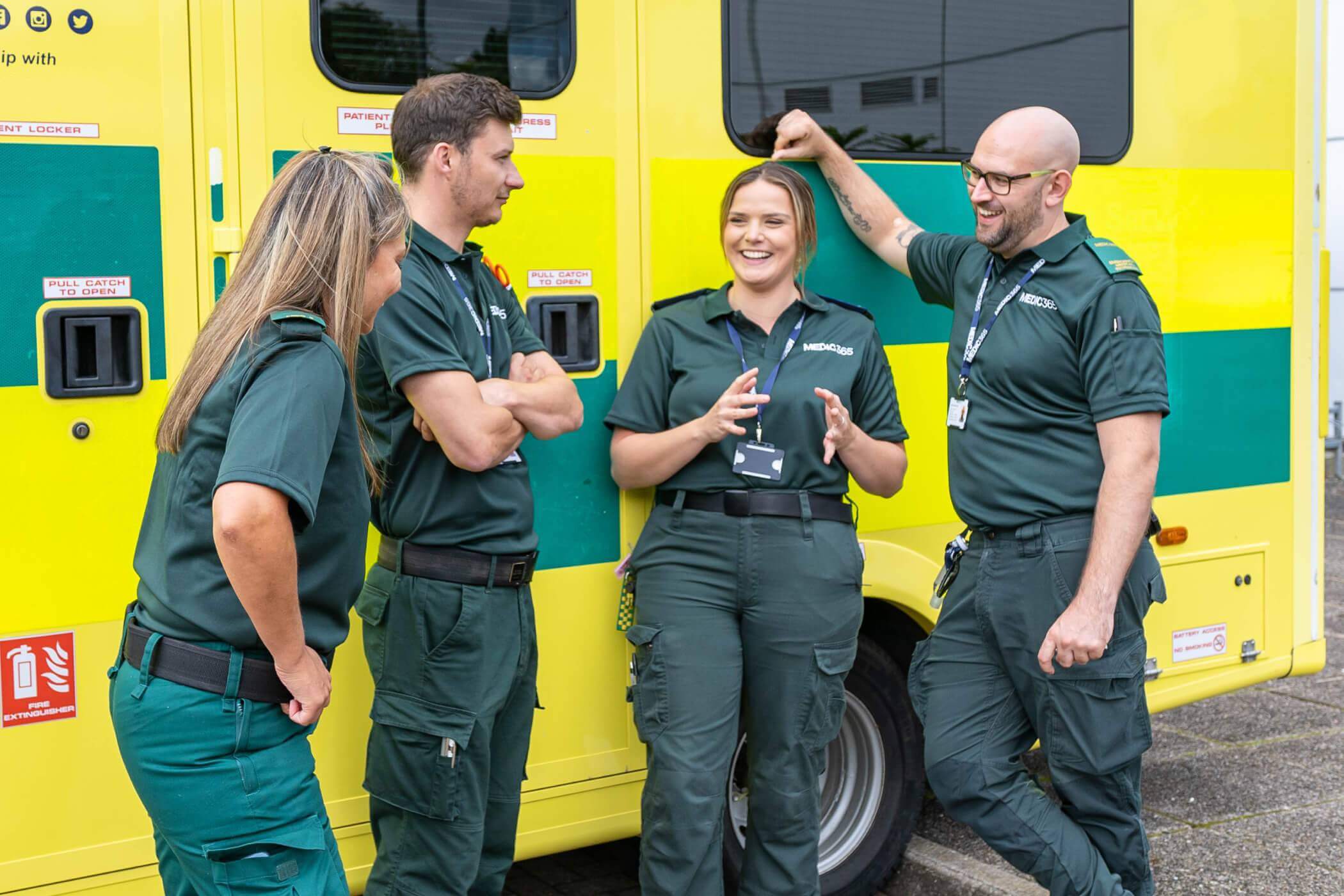
How Long Does It Take To Become A Paramedic
The time it takes to become a paramedic in the UK depends on your chosen pathway. Here’s what to expect from each one:
University Degree (3-4 Years)
Typically, a full-time Paramedic Bachelor’s Degree takes three years to complete, but many students choose to do an additional year of training in the industry. It takes this long because students obtain advanced medical knowledge and receive hands-on training.
Degree Apprenticeship (3–4 Years)
Paramedic Degree Apprenticeships take three or four years, depending on your programme and employer. It typically takes slightly longer than full-time study because you’re balancing work and learning.
Technician to Paramedic (4–5 Years)
Depending on how quickly you progress, this route usually takes the most time. You’ll need to begin as an EMT or in a similar role and gain on-the-job experience in this position. Then, you’ll need to complete paramedic training while working.
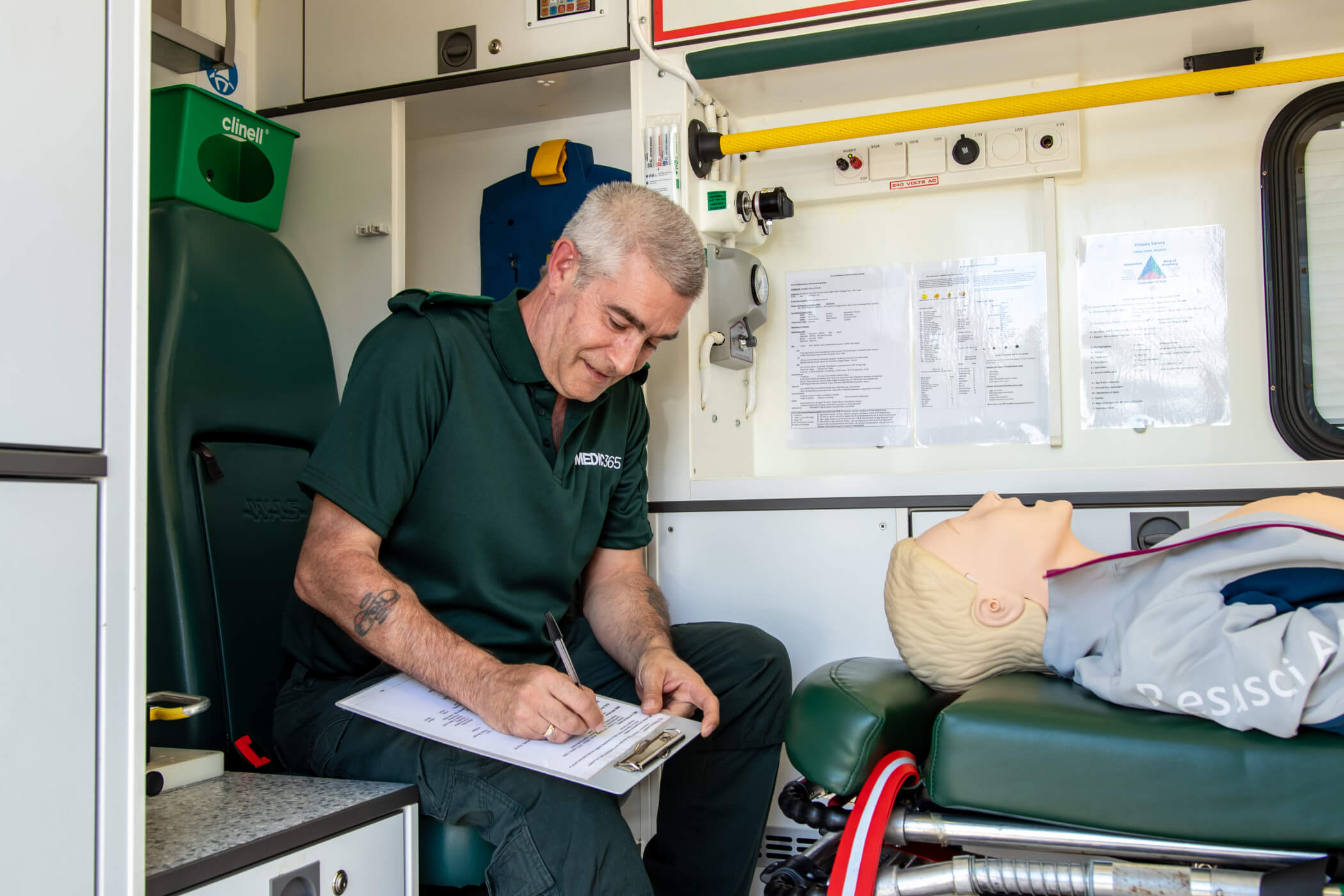
How Much Do Paramedics Make?
The salary of paramedics in the UK varies depending on their experience, role, and location. Paramedics working for the NHS are typically paid according to the Agenda for Change pay scale. Newly qualified paramedics in the NHS can earn £28407-£34,581 annually. As you gain experience and move up through the bands, you can expect your salary to rise to £43,742-£50,056 annually. Paramedics working in the private sector or for ambulance agencies may earn £30,000 – £50,000 annually, depending on their role and workload.
Other factors that impact a paramedic’s pay include unsocial hours and location. Paramedics often receive extra pay for working evenings, weekends, and bank holidays, typically an additional 25–50% depending on the shift. Additionally, London-based paramedics may receive a high-cost area supplement of £4,000-£7,000 annually.
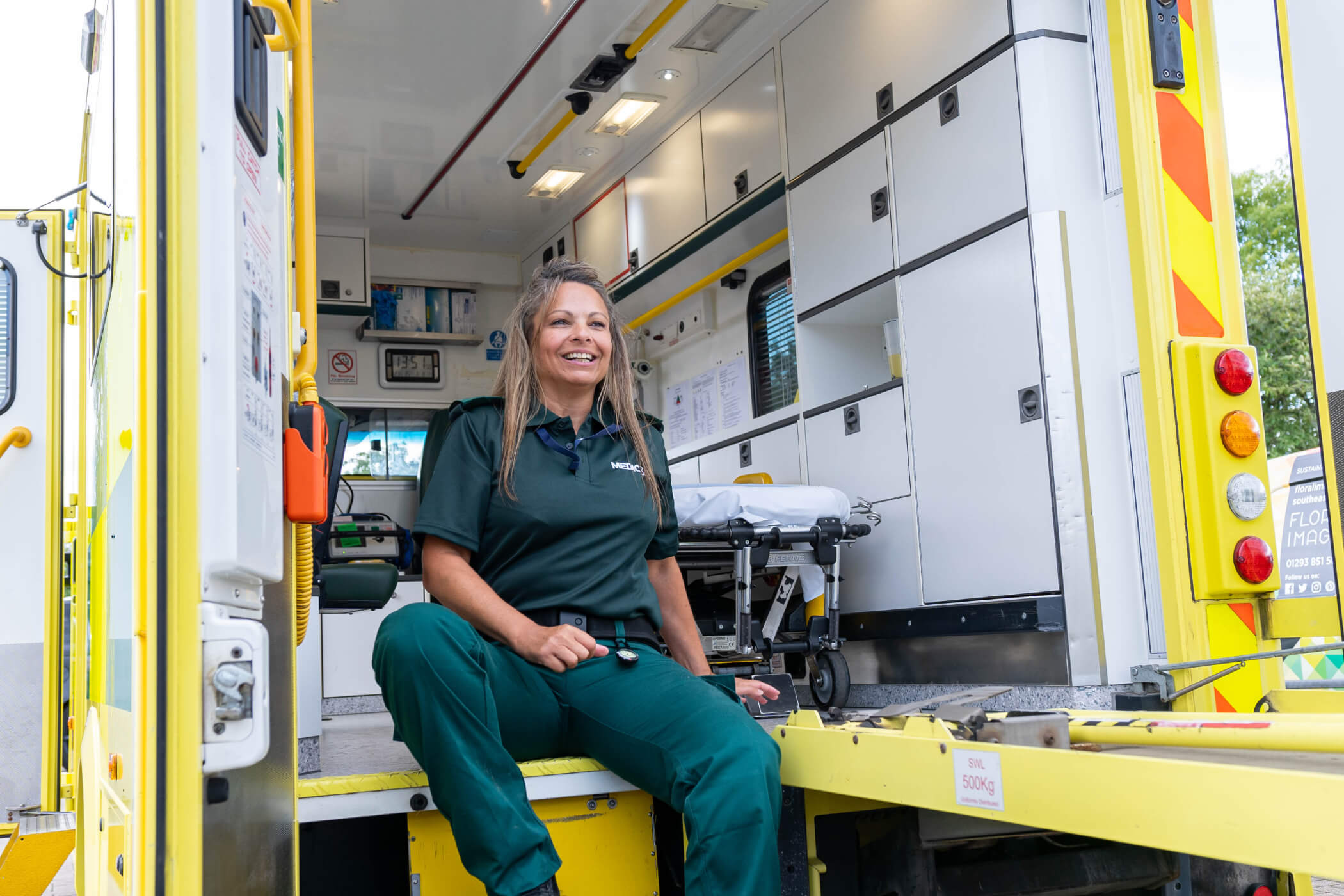
Finding Paramedic Positions
Once you’ve achieved your paramedic qualifications and registered with the HCPC, you can start looking for roles that suit you. The paramedic profession can be highly competitive, so using a recruitment agency like Medic 365 is always recommended. Here are a few of the ways working with Medic 365 will benefit your job search:
Tailored Job Matching
We work closely with candidates to match their skills, experience, and preferences to suitable roles, saving you time and effort in your job search. We’ll conduct personalised assessments of your profile, including your personality, qualifications, and skills, to match you with positions you align with.
Flexible Work Options
We offer a variety of roles to suit a wide range of employment needs. Whether you’re looking for temporary, contract, part-time, or full-time work in the private or public sector, we’ve got openings to suit you. With such an extensive range of opportunities, we make it easy to prioritise your work-life balance.
Opportunities for Career Development
We offer a selection of training programmes so you can further your career. Explore our training courses to brush up on your understanding or further your medical education.
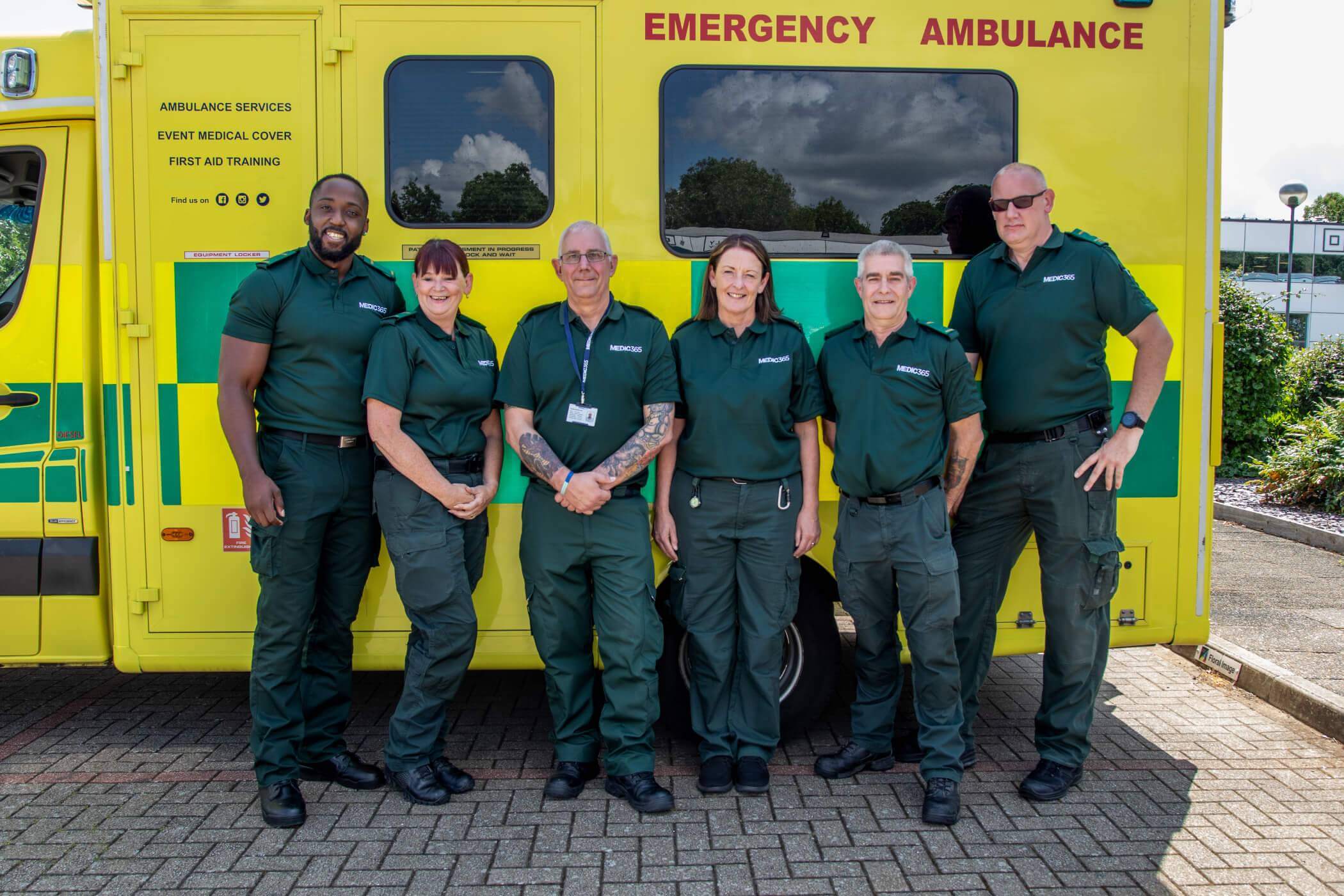
Further Your Career With Medic 365
A career as a paramedic is as challenging as it is rewarding; that’s why over 15,000 people have joined the profession in the last 5 years. While training may seem extensive, it equips you with the skill set to administer first-class care in medical emergencies and change patients’ lives. So, whether you’re at the start of your career path or thinking about a change of profession, it’s definitely worth considering a career as a paramedic.
If you’re unsure whether a career in healthcare is right for you, why not try out one of our first aid at work courses in Milton Keynes? You’ll be given the opportunity to get hands on and learn life saving skills with experienced medical professionals. Get in touch to set up your course today.

